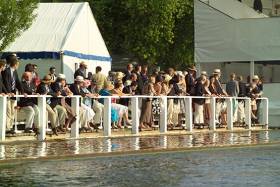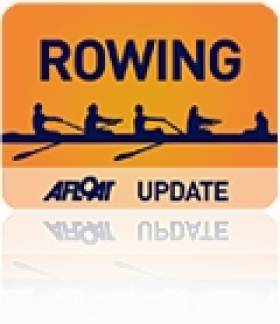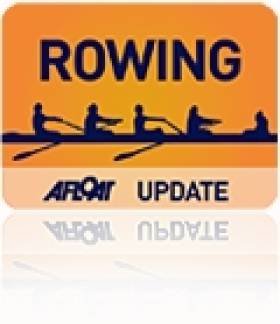Displaying items by tag: Dave Neale
Neale and Jacob Battle Hard at Henley
#Rowing: The Old Collegians crew of Dave Neale and Sean Jacob lost out to Christiania Roklub of Norway in the Double Sculls at Henley Royal Regatta today. The Norwegians led from the start. They had carved out a one and three-quarter length lead by Fawley, and while the Irish crew kept them honest, they could not reel them in.
Henley Royal Regatta, Day Two (Selected Results, Irish interest)
Double Sculls (Open): K Lorentzen and S Vinje bt D Neale and S Jacob 2¾ l; 7:53.
Irish Rowing Crews Qualify For Henley Royal Regatta
#ROWING: The Lady Elizabeth coxed four and single sculler Anthony English both qualified for the main draw at Henley Royal Regatta today. The Lady Elizabeth crew of Brendan Smyth, Stuart King, Peter Waldron, David Meehan and cox Brendan Farrell will compete in the Britannia, while English, who has been based in Nottingham, is set for the the Diamond Sculls. It is the premier event for single scullers.
A number of Irish crews were not asked to pre-qualify. The Trinity senior eight will compete in the Temple Cup; Queen’s University have a quadruple scull in the Prince of Wales; Dave Neale and Eimantas Grigalius of Three Castles are entered in the Double Sculls.
Henley Royal Regatta – Qualifiers (Irish interest)
Diamond Sculls: A English
Britannia (Fours, coxed): Lady Elizabeth
Neale Offaly's Fastest at Tullamore Time Trial
# ROWING: The Tullamore Time Trial drew a big entry on Saturday, with Dave Neale of UCD coming out on top with a time of eight minutes 26.40 seconds. Neale’s closest rival was Rory O’Connor of Queen’s University, who also learned his craft with Offaly Rowing Club. Sheila Clavin of St Michael’s in Limerick was the fastest woman, clocking 9:28.60.
Tullamore Time Trial, Saturday (Selected Results)
Overall: 1 D Neale (UCD) 8:26.40, 2 Neale 8:32.50, 3 R O’Connor (Queen’s) 8:39.00, 4 M McKibbin (Queen’s) 8:44.90, 5 McKibbin 8:56.40, 6 A Bolger (Carlow) 8:56.50. ]
Men – Open: Neale 8:26.40. Intermediate: McKibbin 8:44.90. Junior 18: Molloy (Athlone) 9:01.10. Junior 16: Egan (Athlone)
Women – Open: S Clavin (St Michael’s) 9:31.20. Intermediate: A Bulman (UCD) 9:30.40. Junior 18: Kelly (Carrick-on-Shannon) 10:06.60. Junior 16: McCabe (Carrick-on-Shannon) 10:41.30. Masters A: S Clavin (St Michael’s) 9:28.60.


























































